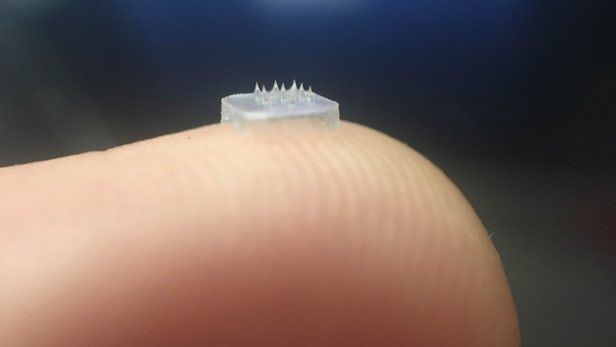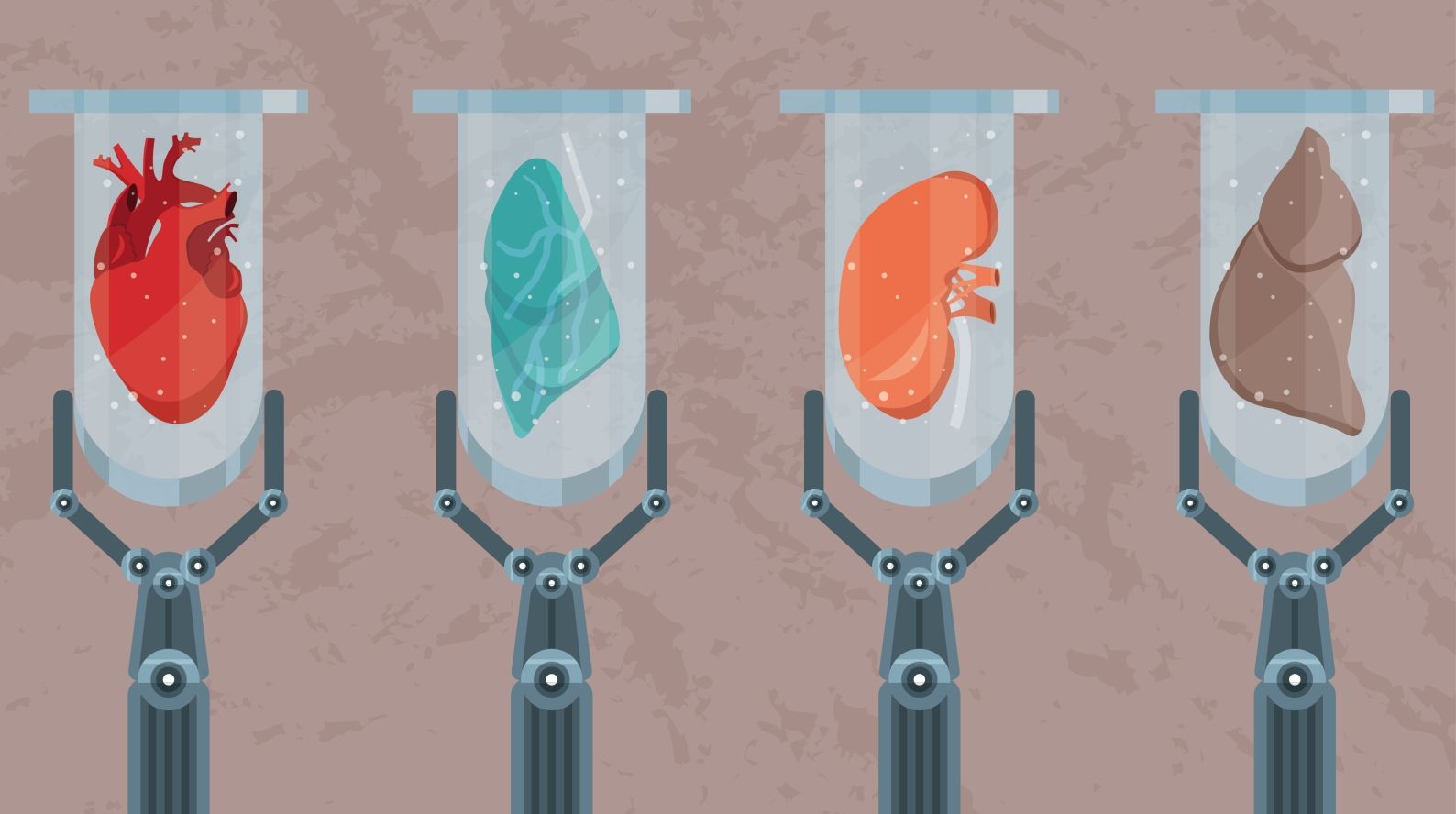We’ve already heard about “microneedle” patches that near-painlessly deliver medication through the skin. Well, scientists at Nanyang Technological University, Singapore have now taken the same approach to treating eye diseases. They’ve developed a tiny patch laden with even tinier needles, which get poked into the eyeball.
Page 9297
Nov 19, 2018
‘Pinwheel’ system may upend star death theory
Posted by Genevieve Klien in category: space
A newly-discovered massive star system, perhaps the first of its kind found in our galaxy, challenges existing ideas about how large stars eventually die.
Nov 19, 2018
How to Control a Machine with Your Brain
Posted by John Gallagher in categories: biotech/medical, cyborgs, robotics/AI
Jan Scheuermann was one of the first volunteers on DARPA’s Revolutionizing Prosthetics program and became a pioneer in the field of brain-machine interface, controlling first an advanced robotic arm, and then a simulated jet, with her mind alone. The New Yorker tells her story in exquisite detail, along with the story of Nathan Copeland, the volunteer who followed Jan in the research and put his own spin on how it unfolded.
A neuroscientist’s research into the mysteries of motion helps a paralyzed woman escape her body.
Nov 19, 2018
Thousands Flee As Guatemalan Volcano Erupts Again
Posted by Genevieve Klien in category: futurism
Guatemala’s Volcano of Fire killed more than 100 people when it erupted in June. Now, thousands are evacuating their homes as the volcano once again spews ash and hot rocks.
Nov 19, 2018
Virgin Orbit flies its rocket into the skies for the first time
Posted by Genevieve Klien in category: transportation
For the first time, Virgin Orbit has strapped its 21-meter rocket to a modified 747 aircraft and taken to the skies. The company performed this “captive-carry” test flight on Sunday in Victorville, located to the northeast of Los Angeles.
“The vehicles flew like a dream today,” Virgin Orbit Chief Pilot Kelly Latimer said in a news release. “Everyone on the flight crew and all of our colleagues on the ground were extremely happy with the data we saw from the instruments on-board the aircraft, in the pylon, and on the rocket itself. From my perspective in the cockpit, the vehicles handled incredibly well, and perfectly matched what we’ve trained for in the simulators.”
Nov 19, 2018
The Times of the Global Screen and the Posthuman Subjectification
Posted by Steve Nichols in category: futurism
Without realizing, a new human being has been born in the brief time since WWII. He does not have the same body, does not have the same life expectancy, does not live in the same space, does not communicate in the same way, does not perceive the same outside world, no longer lives close to nature; born under epidural and with a scheduled birth, he does not face the same death, due to palliative care. He does not have the same mind as his parents and acquires knowledge differently. https://www.bbvaopenmind.com/en/the-times-of-the-global-scre…ification/ https://paper.li/e-1437691924
The global screen has begun: an era in which these devices change the way we are and how we interact with the world.
Nov 19, 2018
Space: how far have we gone – and where are we going?
Posted by Michael Lance in categories: government, space travel
Billionaire entrepreneurs are trying to create rockets fit for human travel, while government agencies spend billions furthering their explorations. But we are still a long way off from making our way to the red planet by Oliver Holmes.
Nov 19, 2018
Israeli scientists develop implanted organs that won’t be rejected
Posted by Marcos Than Esponda in categories: biotech/medical, neuroscience
“With our technology, we can engineer any tissue type, and after transplantation we can efficiently regenerate any diseased or injured organ — a heart after a heart attack, a brain after trauma or with Parkinson’s disease, a spinal cord after injury”
Breakthrough development uses a patient’s own stomach cells, cutting the risk of an immune response to implanted organs.
Nov 19, 2018
Breakthrough neural network paves the way for quantum AI
Posted by Genevieve Klien in categories: information science, quantum physics, robotics/AI
A team of Italian researchers successfully ran a perceptron algorithm on a real, working quantum computer using IBM’s cloud-access Q Experience system.


















